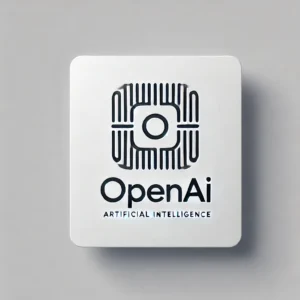
A New Era for AI in America
Artificial intelligence (AI) has emerged as one of the most transformative technologies of the 21st century, with the potential to reshape economies, industries, and societies worldwide. For the United States, maintaining its leadership in AI is not just a matter of technological superiority, but of strategic importance on the global stage. As China intensifies its AI efforts, the U.S. faces a critical decision: how to foster an AI ecosystem that supports ethical development, maintains economic dominance, and upholds democratic values.
In early 2025, OpenAI, a leader in AI research, recognized the need to proactively shape U.S. policy regarding AI development. With Donald Trump set to take office again, OpenAI saw a significant opportunity to align its goals with the Trump administration’s economic agenda. OpenAI’s leaders, including Sam Altman, believe that the U.S. must lead the charge in AI to secure its technological future. AI’s influence is felt across industries like healthcare, transportation, finance, and national defense, making it imperative for the U.S. to leverage its position as the birthplace of AI innovation.
OpenAI’s vision for AI in America is clear: AI should not only enhance economic productivity but also be developed in a way that promotes the well-being of all citizens. The company has long advocated for responsible AI development—advocating for frameworks that ensure AI benefits society without compromising privacy or public safety. Partnering with the Trump administration could provide the policy backing necessary to move these ideas from theory to reality.
For Trump, AI represents a critical tool in his broader plan to reinvigorate American industry and maintain global dominance. Trump has often stated that his administration will focus on bringing jobs back to the U.S., ensuring that American workers are not left behind by rapid technological advancements. With AI being integral to this vision, OpenAI’s partnership with Trump provides an avenue for translating technological advancements into tangible policy reforms that support innovation while addressing concerns about job displacement, economic inequality, and security.
The intersection of OpenAI’s goals and Trump’s priorities creates an unprecedented opportunity to shape the future of AI in America. However, achieving this vision will require significant collaboration between the government, private sector, and academic institutions. In this article, we will explore how OpenAI and the Trump administration are joining forces to position the U.S. as the world leader in AI, examining their shared goals, challenges, and potential solutions.
The Growing Importance of AI for America’s Future
The rapid advancement of AI is reshaping global economies. AI is expected to add trillions of dollars to global GDP in the coming decades, transforming how businesses operate, governments function, and citizens interact with technology. As countries like China, Russia, and the European Union intensify their AI efforts, the U States must remain ahead of the curve to protect its economic and national security interests.
AI’s applications span a vast array of industries, from automated manufacturing to predictive healthcare analytics, autonomous vehicles, and beyond. In sectors like finance, AI is already being used to predict market trends, detect fraud, and optimize investment strategies. In healthcare, AI is helping to diagnose diseases with unprecedented accuracy, while in defense, AI is playing an increasingly pivotal role in cybersecurity and military operations.
Despite the U.S.’s strong position as a technological leader, there is growing concern that America could fall behind its global competitors, particularly China. China’s AI ambitions have been aggressive, with the government pouring billions of dollars into AI research, aiming to become the global leader in the field by 2030. While the U.S. remains a dominant force in AI research and innovation, OpenAI’s leadership recognizes that America must remain vigilant and committed to maintaining its edge in the AI race.
The U.S. has long been the birthplace of AI’s most groundbreaking research, from the early days of machine learning to the advent of deep learning technologies that are revolutionizing industries today. However, without significant investment in AI infrastructure, such as data centers, supercomputing resources, and talent development, the U.S. could risk losing its competitive edge to nations that are rapidly accelerating their AI programs. This is where OpenAI sees a role for collaboration with the U.S. government.
OpenAI’s leadership has called for substantial investments in AI infrastructure. This includes establishing research hubs, building supercomputing centers to train advanced AI models, and supporting AI talent through educational programs and research grants. Such investments will not only help the U.S. maintain its leadership in AI but will also stimulate the economy by creating high-tech jobs and advancing industries that rely on AI.
OpenAI has also proposed initiatives to use AI in solving pressing global challenges, including climate change, healthcare access, and public safety. By leveraging AI to address these issues, the U.S. could further solidify its position as a global leader, showcasing how AI can be used responsibly to benefit society as a whole.
However, the rapid pace of AI development also brings significant risks. AI technologies, if not regulated effectively, could pose serious threats to privacy, safety, and social equity. OpenAI recognizes that the U.S. government must play an active role in creating regulations that ensure AI technologies are developed and deployed responsibly.
OpenAI’s Vision for AI Policies and Regulation
At the heart of OpenAI’s engagement with the Trump administration lies the need for a clear regulatory framework that addresses both the promises and the risks of AI. While AI has the potential to revolutionize industries and improve society, it also raises serious ethical, legal, and safety concerns that must be addressed proactively. OpenAI has long advocated for AI regulations that are transparent, fair, and in line with human-centric values.
One of the key proposals OpenAI has put forward is the creation of a dedicated AI regulatory body at the federal level. This body would be responsible for overseeing the development and deployment of AI technologies in the U.S., ensuring that they meet high ethical standards and do not harm the public. For instance, AI systems used in sensitive sectors like finance, healthcare, and criminal justice must be designed to be transparent and accountable, ensuring that decisions made by AI algorithms are explainable and do not disproportionately affect vulnerable populations.
OpenAI’s proposal includes the development of standards for AI systems, which would set clear expectations for fairness, accountability, and transparency. These standards would also require AI companies to disclose the training data and methodologies used to build their algorithms, which is essential for preventing bias and ensuring that AI systems are equitable.
Moreover, OpenAI has emphasized the importance of international collaboration in AI regulation. As AI technologies become more integrated into global supply chains and international markets, it is essential for the U.S. to collaborate with allies such as the European Union and Canada to establish global AI standards. This will help prevent the fragmentation of AI regulations, which could stifle innovation and create barriers to trade.
OpenAI has also proposed that the U.S. government provide incentives for companies to develop AI technologies that prioritize ethical considerations. For example, companies that develop AI systems for healthcare or public safety could receive tax credits or grants for ensuring that their systems are transparent and fair. Such incentives would encourage the private sector to invest in AI technologies that align with the public interest.
Finally, OpenAI has called for a national AI strategy that aligns research funding with societal goals. By directing AI research toward solving global challenges such as climate change, poverty, and access to healthcare, the U.S. can ensure that the benefits of AI are broadly distributed. This would not only enhance the U.S.’s global leadership but also ensure that AI serves the greater good of society.
OpenAI’s Proposal for AI Infrastructure and Talent Development
A critical aspect of OpenAI’s strategy to maintain U.S. AI leadership is the development of cutting-edge infrastructure and the cultivation of a highly skilled workforce. AI technologies require immense computational power to train sophisticated models, and without the proper infrastructure, the U.S. risks falling behind other countries with more robust resources. OpenAI has emphasized the need for investment in AI infrastructure to ensure that American companies and researchers have the resources they need to push the boundaries of AI innovation.
OpenAI has proposed the creation of AI research hubs, which would serve as centers for collaboration between academia, industry, and government. These hubs would provide the necessary resources for AI researchers to develop new models and technologies that push the envelope of AI capabilities. The development of AI supercomputers is also a key component of this proposal, as these machines are essential for running the large-scale simulations needed to advance AI research.
In addition to physical infrastructure, OpenAI also advocates for investment in human capital. The demand for AI talent is high, and the U.S. must ensure that it has the skilled workforce needed to meet the demands of this rapidly evolving field. OpenAI has suggested that the U.S. government fund AI education programs, scholarships, and research initiatives to foster the next generation of AI leaders. By investing in AI education, the U.S. can ensure that its workforce remains at the forefront of technological innovation.
OpenAI’s vision for AI talent development goes beyond just technical training. It includes efforts to create a diverse and inclusive AI ecosystem that attracts people from all backgrounds. This would help ensure that AI technologies are developed with a wide range of perspectives in mind, reducing the risks of bias and discrimination in AI systems.
Ensuring Ethical AI Development
As AI technologies become more powerful, they raise significant ethical questions. How do we ensure that AI systems are designed to be fair and unbiased? How do we protect the privacy of individuals while allowing AI to use vast amounts of data to improve decision-making? OpenAI is deeply committed to ensuring that AI development proceeds in a manner that benefits humanity.
To address these concerns, OpenAI has proposed a framework for ethical AI development that includes transparency, accountability, and fairness as core principles. For example, AI companies would be required to conduct regular audits of their algorithms to ensure that they are not perpetuating harmful biases. Additionally, OpenAI has called for the creation of independent ethics boards that would oversee AI development and ensure that ethical guidelines are followed.
Another area of concern is the use of AI in surveillance and military applications. OpenAI has called for strict regulations to ensure that AI is not used in ways that violate individual rights or contribute to harmful military escalations. By fostering transparency and accountability, OpenAI hopes to prevent AI from being misused by governments or corporations.
Finally, OpenAI believes that ethical AI development should be driven by collaboration between industry, academia, and government. By involving a wide range of stakeholders in the AI development process, the U.S. can ensure that AI technologies are designed to serve the common good.
Shaping the Future of AI in America
OpenAI’s collaboration with the Trump administration represents a critical moment in the evolution of artificial intelligence in the United States. Through thoughtful investment in infrastructure, clear regulatory frameworks, and a commitment to ethical AI development, the U.S. can secure its place as the global leader in AI innovation. By working together with government leaders, tech companies, and academia, OpenAI is helping to shape a future where AI drives economic growth, enhances societal well-being, and serves humanity as a whole.
In the coming years, the relationship between OpenAI and the Trump administration will likely play a key role in defining the future of AI in the U.S. By focusing on responsible, ethical development and ensuring that AI benefits society at large, OpenAI and the U.S. government can set an example for the rest of the world on how to use AI to create a more equitable and prosperous future.
Feel free to check out our other website at : machinepwr.com



